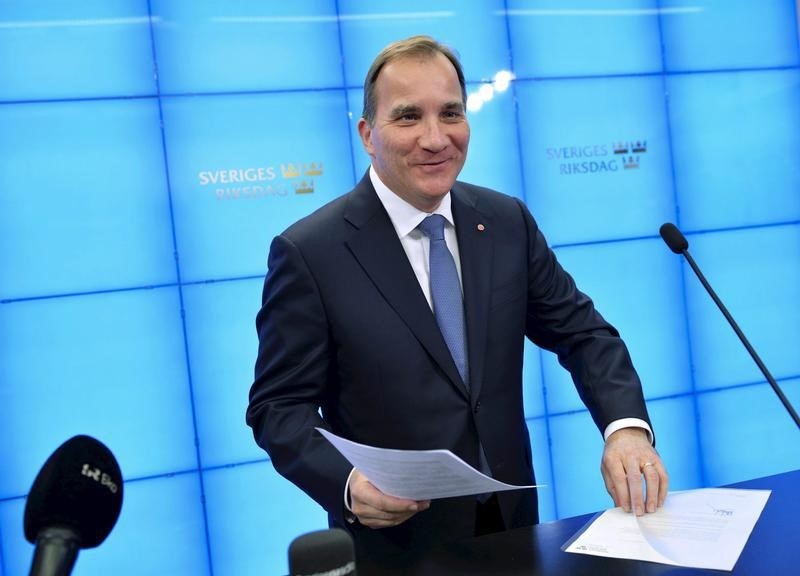STOCKHOLM (Reuters) - Support for the anti-immigration Sweden Democrats has nudged lower since a national election three months ago, a poll showed on Monday, reducing the chance that the party will try to bring down the centre-left government in a budget vote this week.
The Sweden Democrats polled 12.4 percent in the twice-yearly survey by the Statistics Office, down from 12.9 percent in September's election which made them the country's third largest party and left them holding the balance of power.
Analysts had speculated that a strong poll result would make it more likely the party -- pariahs in parliament -- would vote against the minority government's budget on Wednesday, a move that could in the worst case scenario lead to a new election.
"I do not think there is anyone who sees a window of opportunity here," said Henrik Ekengren Oscarsson, professor of political science at Gothenburg University.
"I think most see that the (parliamentary) situation is what we have to work with."
In Sweden, each party in parliament puts forward a budget proposal and the one backed by the most votes wins.
Even with the support of the Left Party, the ruling Social Democrats and Greens don't have enough votes to force a budget through parliament if the Sweden Democrats back an alternative finance bill to be presented by the centre-right Alliance opposition bloc.
The Sweden Democrats, who are not part of the Alliance bloc, will announce their budget position on Tuesday. If they decide to back the opposition's budget plan, the minority government still has some options.
Prime Minister Stefan Lofven could rework his budget in the parliament's finance committee, hoping for support from the Alliance. He could also resign and try to form a new government.
All four parties in the Alliance opposition bloc - which is running neck and neck with the two-party government in the new poll - have rejected Lofven's calls for cross-party cooperation.

A last resort would be to call a snap election. Analysts say none of the major parties had much to gain from that option, which would entail a period of uncertainty that could spook financial markets.
(Reporting by Stockholm Newsroom; Editing by Gareth Jones)